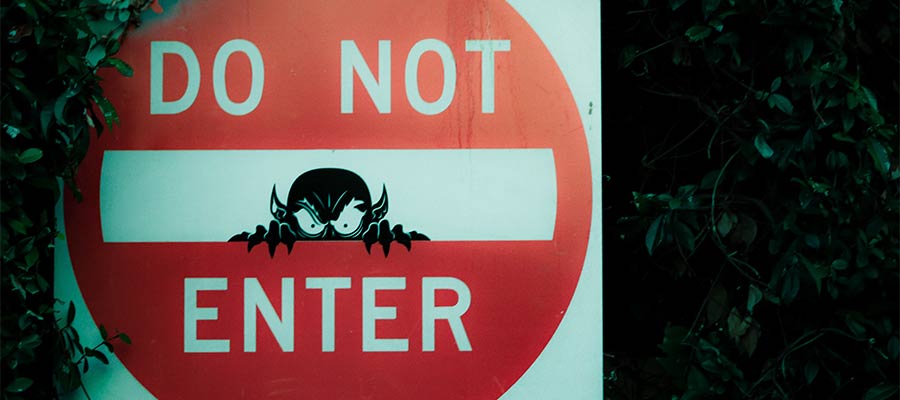I’ll admit it: I have an ego. I like to be praised when I do something well (and maybe even when I didn’t do so well). I’m quite certain that I’m not alone, however.
It’s probably a safe bet that most of us have an ego – even if we don’t necessarily show outward signs of one. After all, who doesn’t want to feel good about their abilities?
An ego, in and of itself, isn’t an evil thing. It can be quite beneficial to your design career and your life. But there’s a fine line between using it healthily and letting it get in your way.
Today, we’ll dive into the good, the bad, and the ugly of a designer’s ego.
How a Healthy Ego Can Boost Your Business
A little bit of ego can indeed be a good thing. For one, it can bring a higher level of confidence as you approach your work. Instead of fretting that a project is impossible, you’ll be reassured of your ability to take it on.
Having confidence and the right perspective can also keep you humble to a certain degree. Knowing that you have talent and a good reputation sets a high level of expectation. It can help you stay focused and hard at work.
The more you rise to meet the challenge, the more this all becomes a self-fulfilling prophecy. You’ll continue to stay hungry while achieving your goals.
Moving forward, a healthy ego can lead you to make sound business decisions. A balance of confidence and awareness will help you decide which projects to jump on and which to turn down.
You won’t feel desperate to grab a hold of every opportunity that comes along. Instead, you’ll wait for the right one.
How to Get There
Developing a “good” ego takes time. You may have to go through several ups and downs before you gain a balanced view of yourself and your abilities.
To start, realize that you’re human and are going to make mistakes. When you do, accept responsibility, and try to rectify it. Do your best to learn from what happened and move on.
Confidence can be a fragile thing. During rough patches, remember why you became a designer in the first place.
Think about what inspired you. Perhaps someone encouraged you along the way. Recalling your love for design can be a great confidence builder.
For example, I like to recall some of the first websites I built. While they wouldn’t be very impressive by today’s standards, they do give me a sense of pride. I also look back at some mentors who helped me learn and evolve.
Even after a long day’s work, I’d race home and spend hours practicing and creating. Back then, it made me feel good. Now, it helps me to remember where everything started. It’s something I can turn to when confidence is low.

When Your Ego Can Become Problematic
Instances of egos gone mad are all around us. Whether you’re reading a history book or watching the news – the signs are everywhere.
For designers, a bad case of ego can take shape in several ways:
You Stop Listening to Others
Indeed, clients don’t always make the best suggestions. And when you hear enough bad ideas, you might start tuning people out. However, that’s a big mistake.
When you refuse to take other people’s opinions seriously, you start creating things only to please yourself. Listening to others and working to understand their point of view is critical to a successful project.
It’s perfectly fine to state your case and (gently) argue for what you believe in. Just remember that it’s also OK to compromise when necessary. Great ideas can come from anywhere.
You Stop Learning
I’ve fallen into this trap throughout my career. Once you become proficient with a skill (HTML, CSS, graphics, etc.), it’s easy to become a bit lazy.
But web design is an industry that can leave you behind in a heartbeat. Learning is critical to staying relevant. To put it bluntly: your future depends on your ability to adapt.
There was a time when I felt that I was smart enough to get by, regardless of my skill level. Discovering WordPress, oddly enough, made me realize how wrong I was.
The platform is incredibly extensible and forced me to start learning again. From there, I found that I had been missing out on a lot of key concepts. It was a truly valuable lesson.
You Operate on Instinct Alone
Newsflash: Your “gut” feeling only means so much. Information is key to making decisions – whether you’re talking about code or your career.
Your ego becomes a problem when you make decisions without bothering to do research. That doesn’t mean you have to toil for hours on end – not every choice is that consequential. It just means recognizing that there are things you don’t know.
Once again, it comes down to a willingness to learn. Assuming you know it all is a dangerous game.

Choose Your Path Wisely, Designer
If we’re not careful, ego can creep up and bite any one of us. And contrary to popular belief, it’s not just egomaniacs that fall prey. It’s often the smaller transgressions that do the most damage.
But ego can play a big role in our ability to succeed. Thus, it’s worth looking at why we make certain decisions. An honest assessment may be the first step toward positive change.
Top